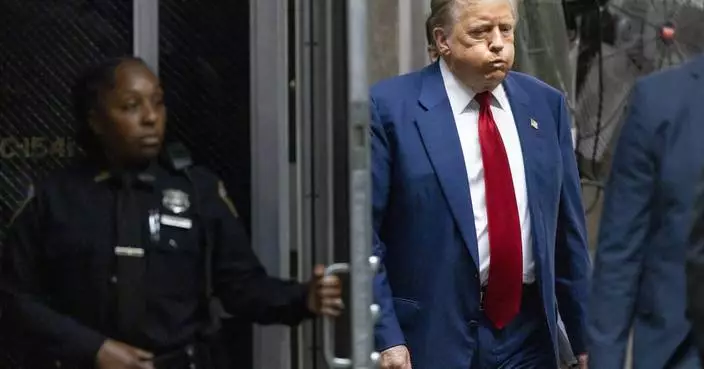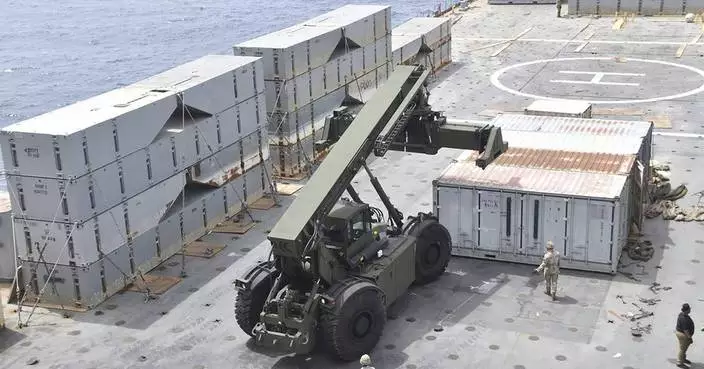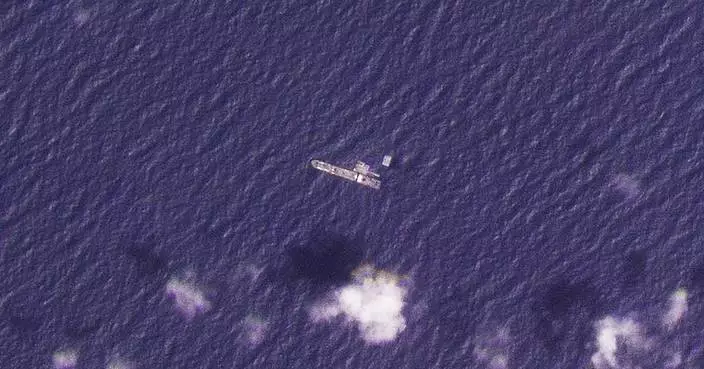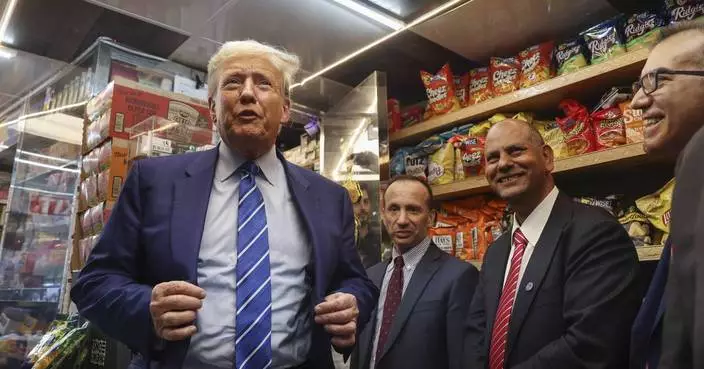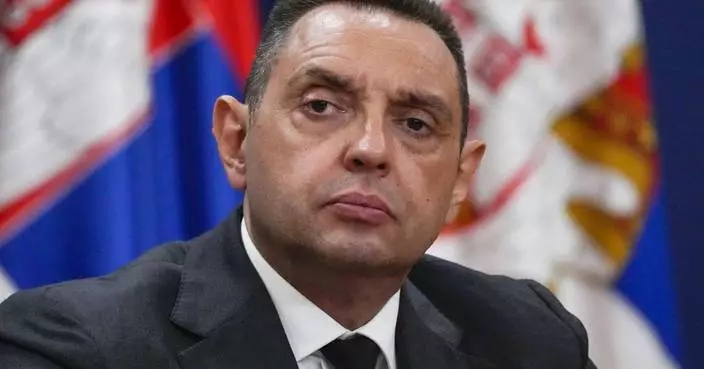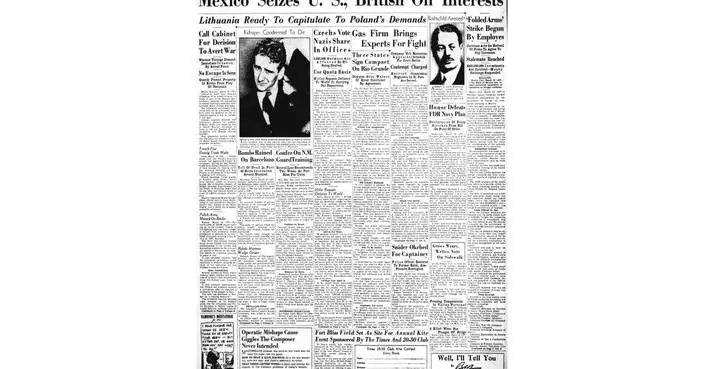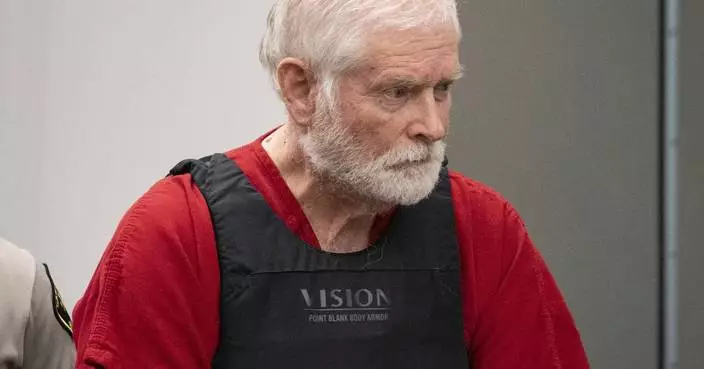President Donald Trump's plan to reverse America's involvement in "endless wars" has run up against a difficult truth: When it comes to national security, rarely can a simple solution solve a complex problem.
After abruptly announcing last week that he would "bring our soldiers home" from Syria, Trump recalibrated and his administration said it would instead redeploy more than 700 to western Iraq to help counter the Islamic State group.
And now his latest plan faces another wrinkle: The Iraqi military said Tuesday those U.S. troops don't have permission to stay in Iraq.
Meanwhile, Turkey and Russia announced Tuesday that they would jointly patrol most of the northeastern Syrian border with Turkey, underscoring the effects of the U.S. creating a power vacuum the Russians have been quick to fill.
In Washington, Senate Majority Leader Mitch McConnell, typically a strong Trump supporter, introduced legislation prodding the president to halt the withdrawal. But he counseled against economic sanctions on Turkey, lest the U.S. "further drive a NATO ally into the arms of the Russians."
"This self-inflicted Syria evacuation was not well thought out," said Michael Knights, a senior fellow at the Washington Institute for Near East Policy. "Linking the practical to the strategic has become harder and harder for this administration, because there is no thinking from the top that connects these decisions down at the working level."
It's the latest example of Trump's from-the-gut approach to national security policy encountering roadblocks.
Trump's charm offensive with Kim Jong Un has failed to prod North Korea to give up its nuclear weapons program. His withdrawal from the Obama administration-brokered Iran nuclear agreement prompted Iran to breach limits on its enrichment and stockpiling of uranium. And the president's decision to negotiate with the Taliban to set the groundwork for withdrawing U.S. forces from Afghanistan has failed to stem the violence there.
As for Syria, Trump announced the U.S. withdrawal after Turkish President Recep Tayyip Erdogan made it clear in a phone call that his forces were about to invade to push back Syrian Kurdish fighters whom Turkey considers terrorists.
Defense Secretary Mark Esper said Tuesday he planned to talk to Iraqi leaders to work out details, adding that the U.S. has no plans to have the troops stay in Iraq "interminably." Esper is to speak with the Iraqi defense minister on Wednesday and said he would underscore that the aim is to pull U.S. soldiers out and "eventually get them home."
Hogan Gidley, the White House principal deputy press secretary, said Tuesday that Trump remains committed to bringing the troops back to the U.S.
"That was his goal when he ran for office," Gidley said. "That's what he wants to do now. But he also wants to ensure stability in the region."
Trump initially announced his intention late last year to begin withdrawing troops from Syria, a decision that prompted the resignations of Defense Secretary Jim Mattis and Brett McGurk, special presidential envoy for the global coalition to defeat IS.
At the time, there were about 2,000 American troops deployed to Syria.
The U.S. pullout announced last week largely abandoned Syrian Kurdish allies who have fought the Islamic State group alongside U.S. troops for several years. Between 200 and 300 U.S. troops are to remain at the southern Syrian outpost of Al-Tanf.
McGurk this week accused Trump of approaching the decision without taking a long view of the reality on the ground.
"This is the problem of not having a national security process -- a process where, before a president says things, he would have some deliberation," McGurk said Monday at an event hosted by the Foundation for the Defense of Democracies, a think tank in Washington.
As U.S. military convoys withdrawing from Syria for Iraq on Monday were pelted with potatoes and stones by angry Kurdish civilians, Trump played down U.S. responsibilities to the Kurds.
"We never agreed to protect the Kurds for the rest of their lives," Trump said. He added that the U.S. would keep the small contingency force in Syria to "protect the oil," but there was otherwise no reason to remain. Trump added that "maybe we'll have one of our big oil companies" go into Syria.
McGurk said Trump's suggestion that an American company would exploit the oil "raises very serious legal implications." The former diplomat added that the pullout of all but a contingency force has negated the Trump administration's influence in the area.
"That influence has evaporated from the moment Trump said leave in December, to cutting the force in half and now by cutting the force by whatever it is," McGurk said. "This is not deliberate policy, these are spasms."
Iraq's sensitivity over accepting more American troops on the ground is hardly surprising, said Knights, the Washington Institute analyst.
Calls for an American troop withdrawal intensified in 2017 after the Iraqi government declared victory against IS. Trump himself has claimed credit for defeating "the so-called caliphate."
Earlier this year, however, Trump angered both Iraqi politicians and Iranian-backed factions by arguing he would keep U.S. troops in Iraq and use it as a base to strike Islamic State group targets inside Syria as needed.
In February, Trump sparked more outrage when he said U.S. troops should stay in Iraq to monitor neighboring Iran.
The push by the Trump administration to put more U.S. troops on the ground in Iraq comes as Prime Minister Adel Abdul-Mahdi's government braces for more protests in Baghdad and elsewhere over corruption, high unemployment and subpar public services.
"The last thing that the Iraqi government needs right now is to turn attention to the presence of American troops," Knights said.
AP writers Darlene Superville in Washington and Qassim Abdul-Zahra and Zeina Karam in Baghdad contributed.




